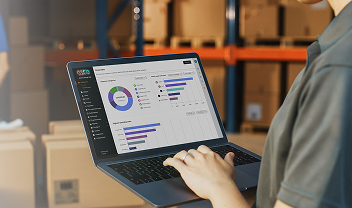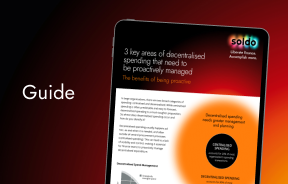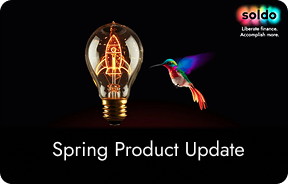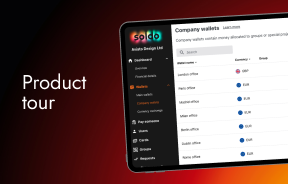On 6 February, the Bank of England reduced the base rate by 0.25% percentage points to 4.5%. Lower interest rates reduce the cost of borrowing, encouraging businesses to invest in employee recruitment, business expansion, and more advanced technology and equipment.
What this means for finance teams managing company spending
Ultimately, more spending means more invoices, receipts and reconciliations. And without the right systems, businesses risk budget overruns, cyber risks, fraud and inefficiencies, all of which impact cash flow and profitability.
Example 1: A social care group expands its facilities and hires more carers. This increases spending on training, essentials for residents, and medical supplies. Finance teams struggle to monitor spending across multiple locations without real-time tracking, leading to budget overruns and inefficiencies.
Finance teams need to stay in control while supporting growth. However, traditional and often outdated finance processes are not built for the scale and speed of modern decentralised spending.
Decentralised spending makes control harder
Teams need access to company money as businesses invest and expand. But when money is spread across multiple teams and locations, it becomes harder to track where it’s being spent and whether it aligns with business priorities.
Soldo allows finance teams to set spending limits and approval workflows. Employees get the flexibility they need without losing oversight. Finance leaders can decentralise spending safely, ensuring teams can access money while maintaining complete visibility and control.
Example 2: A construction company working on multiple projects assigns different teams to purchase materials and services. Without a centralised system, finance teams receive expense reports weeks later, making tracking real-time spending impossible or preventing overspending.
More transactions increase admin and slow finance teams down
With increased spending, finance teams must process more invoices, receipts, and expense claims. Manual processes slow reconciliations, increase errors and make reporting more difficult.
Example 3: A manufacturing company investing in new production lines sees a surge in procurement transactions for raw materials, tools, and machinery. Without automated reconciliation, finance teams spend hours processing invoices manually, delaying financial reporting and impacting cash flow.
Soldo automates reconciliation by syncing transactions directly with accounting software. Employees can upload receipts in real-time, reducing admin for finance teams. According to the 2023 Forrester Consulting Total Economic Impact™ study, which examines Soldo’s financial and business benefits, finance teams spend 80% less time on admin, allowing them to focus on strategic planning and decision-making.
Higher spending increases fraud risk
More payments and approvals elevate the risk of fraud. Without real-time monitoring, businesses may not detect unauthorised spending until too late. The British Business Bank reports that 39% of UK businesses experienced cyberattacks in 2022, with an average cost of £4,200 per incident.
Soldo provides real-time transaction tracking and alerts, helping finance teams spot and prevent suspicious activity before it happens. Businesses can reduce fraud risk by detecting anomalies instantly rather than uncovering issues weeks later in financial reports.
Example 4: A university with multiple campuses sees an increase in student event spending, academic department budgets, and travel expenses for faculty members. Fraudulent reimbursements and unapproved purchases slip through without real-time tracking, only to be identified in end-of-month audits.
Rising business spending requires more substantial budget control
When spending rapidly grows, businesses can lose sight of how much is spent and where. Untracked costs put pressure on cash flow and lead to unexpected budget overruns.
Example 5: A fashion retailer scaling its operations launches new product lines, increasing spending on advertising, influencer collaborations, and pop-up events. Without automated budget controls, unexpected costs add up, impacting profit margins and leading to unnecessary financial strain.
Soldo’s real-time spend tracking and automated budgeting give finance teams control over spending. Managers can set limits, allocate budgets by teams or departments, and prevent unnecessary overspending. Businesses can scale confidently, knowing that growth is supported by structured financial oversight.
Growth doesn’t have to mean losing control
While lower interest rates encourage business investment, growth can lead to inefficiencies, fraud risk, and budget overruns without structured spend management. Soldo helps businesses maintain control over spending while supporting growth.
































